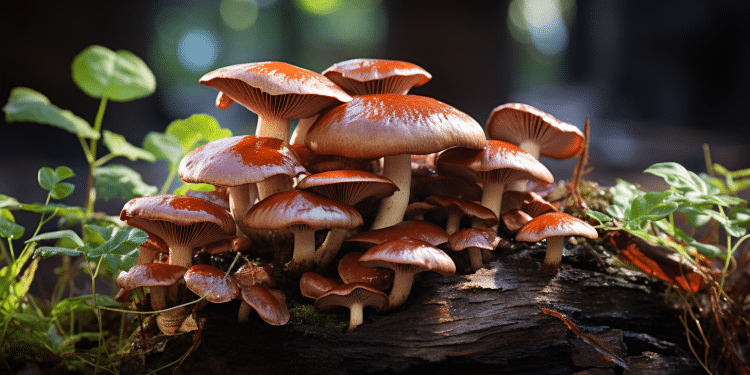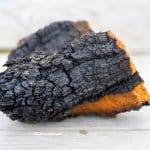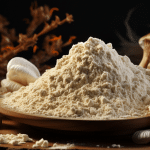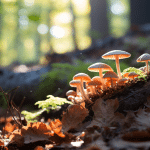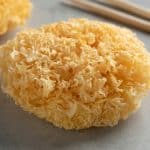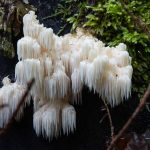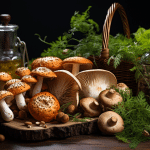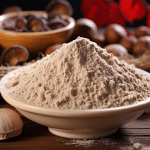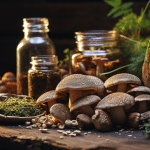Without question, reishi mushrooms are an absolute head-turner. With a shiny, gradient-colored, reddish-brown exterior, this mushroom has been used for thousands of years in medicine in China. Now, research suggests the Chinese may be onto something.
Is Reishi Mushroom Good For Breast Cancer?
Reishi mushrooms (Ganoderma lucidum, or G. lucidum) could possess potential anti-cancer properties that could be good for breast cancer. “Reishi mushrooms contain complex sugars known as beta-glucans, which have been shown in lab studies and animal studies to inhibit cancer cell growth and prevention. The mushrooms are also known for their ability to inhibit cancer cell proliferation,” says an administrator for Memorial Sloan-Kettering Cancer Centers About Herbs site. The mushrooms may even have a role in preventing cancer, says a senior researcher at Indiana University Health Methodist Hospitals Cancer Research Laboratory in Indianapolis.
There was even a study conducted with reishi specifically for breast cancer that you can read more about here.
As always, you should consult with your doctor and medical professionals before adding any new supplement to your regimen, especially if you are receiving cancer treatment. While incredibly safe, you want to be sure you doctor is aware that you would like to take reishi so that they can be on the lookout for any potential side effects.
Research published in PLOS One, found triterpene-ganoderic acid, a steroid-like molecule found in reishi mushrooms, prevented colon cancer associated with colitis in mice and rats. New data from Slivas research suggests that extracts containing a standardized mixture of triterpenes-ganoderic acids and polysaccharides (a carbohydrate found in Reishi mushrooms) may suppress breast cancer metastasis. Triterpenes-ganoderic acids seem to inhibit inflammation and kill tumor cells while being of limited toxicity to non-tumor cells, whereas polysaccharides boost the immune system.
This boost in immunity is especially important for people whose systems are already weak from treatment for cancer. A wide range of mushrooms are used extensively for healing purposes in Asian countries. More than 90% of cancer patients in countries such as China and Japan are using supplements, including medicinal mushrooms. Their usage has grown over the last decade in the Western hemisphere.
Yet, benefits and risks of reishi dietary supplements must be evaluated more thoroughly through carefully designed clinical trials. Most current findings are not based on studies with humans. One exception is the analysis of five clinical trials conducted in China.
The review, published in May 2012 in the Cochrane Library, found that individuals with a variety of cancers who took reishi mushrooms supplements responded more favorably to chemotherapy and radiation treatments than those who did not. Four studies reviewed also found that taking the supplements during treatment for cancer improved quality of life.
You can find our favorite capsules, powders, and tincture’s on the following pages of our website and learn more about each individually:
The Top Reishi Mushroom Supplement
The Top Reishi Mushroom Powder
The Top Reishi Mushroom Tincture
The Top Reishi Mushroom Mushroom Gummies
More than 90% of cancer patients in countries such as China and Japan used supplements, including pharmacological mushrooms. Reishi mushrooms supplements can be found at health stores and online, sold in powder, liquid extracts, capsules, or even tea. Although mushrooms are found growing in wild areas in some parts of the United States, it is not recommended to pick them up yourself–consuming the wrong mushrooms could turn out deadly.
Plus, reishi mushrooms pick up the intense, woody flavors of the trees they sprout from. Certainly popping the supplement sounds much more attractive, but patients should always consult with a physician before adding any supplements to their routine. The antioxidant effects of mushrooms may be counterproductive for chemotherapy agents based on free radicals. Reishi mushrooms also have an anti-clotting effect, meaning that they should not be taken with blood thinners, including aspirin. And, although there are some case reports suggesting reishi mushrooms might have some beneficial effects against liver cancer, one known side effect of the supplement is liver toxicity.
Updated 10/21/2022
Additional Resources:
